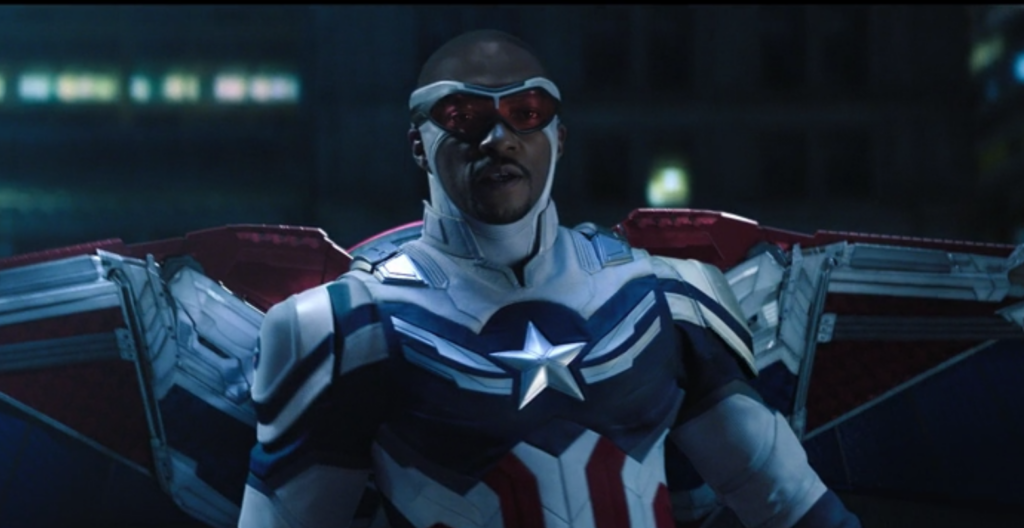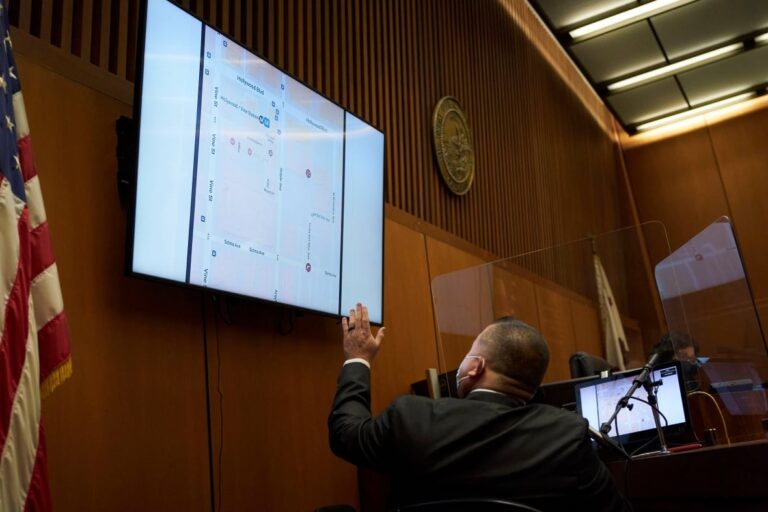
Audience
- Sentiment: negative
- Political Group: None
- Age Group: 18-34
- Gender: Any
Overview
- The end-credits scene left many viewers feeling underwhelmed and disappointed.
- Fans criticized the missed opportunity for a stronger connection to the film’s main plot.
- The concept of MCU fatigue is discussed, suggesting an overload of content may be affecting audience expectations.
The End-Credits Scene: Hype or Just Hype?
If you’ve just come back from watching the latest addition to the Marvel Cinematic Universe (MCU), you might be feeling a mix of excitement and confusion—especially after the end-credits scene that left a lot of viewers talking. That’s right, you probably had your popcorn ready and were dancing in your seat during the final moments of the film, but what did it really mean? Why was it getting so much buzz, and why were fans feeling let down? Let’s dive into it!
First, let’s set the scene. You’re sitting in a dark theater, adrenaline still pumping from the action-packed movie you just watched, and you know the end-credits scene is coming. This is a classic MCU moment where we usually get a mind-blowing hint at what’s to come—a sneak peek into an upcoming crossover or an exciting character’s introduction. Think back to those thrilling moments, like when Captain America made his first appearance or when Thanos grinned menacingly. The end-credits scenes have always delivered surprises that keep fans buzzing. But this time, the scene featured Sam Wilson, played by Anthony Mackie, chatting with the villain Samuel Sterns, played by Tim Blake Nelson.
During the conversation, Sterns hints at a looming threat involving other worlds and a “multiversal convergence.” That sounds pretty epic, right? The multiverse concept has been a hot topic in the MCU lately, especially with the introduction of new characters and dimensions. However, as the scene unfolded, rather than feeling excited, many viewers felt a bit underwhelmed. This begs the question: why?
The Multiverse: What Is It Anyway?
To understand the scene better, let’s quickly recap what the multiverse is for those who might not be super familiar. In simple terms, the multiverse is the idea that there are many different universes coexisting with ours. Each universe can have different versions of the characters we know and love. For example, you could have a universe where Spider-Man is a pizza delivery guy or one where Iron Man never existed at all! The concept opens the door for endless story possibilities, and it has been a major theme in recent MCU projects.
Think about it: when the multiverse was first introduced, it created tons of excitement. Fans couldn’t wait to see how different characters from different universes would interact with each other. Remember Spider-Man’s “No Way Home”? That film brought together beloved characters from past Spider-Man movies, and the audience loved every second of it! So, when we heard hints of a multiversal convergence in this movie’s end-credits scene, we were naturally ready for another thrilling ride. Unfortunately, Sterns’ conversation didn’t deliver in the way many hoped it would.
Hints or Missed Opportunities?
So why was the end-credits scene criticized? Essentially, a lot of fans felt it was a missed opportunity to tie more strongly to the film’s main plot. Instead of giving us a shocking twist or an exciting introduction, it felt like a tease—one that merely pointed to future projects that are already on the release schedule. It’s like getting a Christmas gift that you already knew was coming. Sure, it’s nice, but it doesn’t spark that same sense of excitement and wonder.
The story of the film had a lot of depth to explore, and many felt the movie built a solid foundation with its characters and themes. Sam Wilson, the new Captain America, is a fascinating character dealing with his own challenges. The conversation with Sterns could have had a much stronger connection to what Sam was experiencing in the film. Perhaps a clue about an upcoming battle or a personal conflict that Sam will face versus just vague threats could have been more engaging.
Imagine if, instead of vague hints about multiple worlds, there was a powerful revelation that tied back to Sam’s journey. Maybe it could have involved a mentor character from the past or a haunting memory that directly relates to him becoming Captain America. This could have added another layer to the story, leaving us wondering how he would navigate the challenges related to that revelation in future films.
A Powerful Villain Missing the Mark
Now, let’s talk about Samuel Sterns. While Tim Blake Nelson is a talented actor with charisma, some fans felt that he didn’t deliver a compelling enough performance. Instead of a villain who truly felt threatening and engaging, he came off more as just another character simply providing exposition. In a cinematic universe filled with memorable villains like Thanos, Killmonger, or Loki, fans expect a lot more. Sterns’ character felt flat, and when he was hinting at future threats, it just didn’t resonate the way it should have.
Many moviegoers left the theater thinking, “Is that it? Is that the big reveal?” The scene could have showcased not only Sterns’ dark intentions but also teased elements about his powers or backstory that could tie back into Sam’s journey or the overall MCU timeline.
The Bigger Picture: MCU Fatigue?
It’s also worth mentioning another factor in the disappointment surrounding this end-credits scene: MCU fatigue. With so many MCU projects coming out in rapid succession, it’s natural for fans to experience a bit of burnout. We’ve had numerous films and series debuting, each packed with story arcs, and characters being introduced left and right. While there’s always something exciting about the MCU, this sheer volume can lead to expectations drifting away from the thrilling moments we used to encounter.
When everything seems so interconnected, there’s a pressure to deliver impactful moments that matter to the overall narrative. Yet, sometimes, they just feel like placeholders. Fans want to feel that thrill and anticipation, and this end-credits scene felt like a slight letdown—like they were being teased for things they already knew about instead of being surprised with new elements tied to their favorite characters.
Conclusion: What Do You Think?
So, was the end-credits scene just a hype train that derailed? Many fans seem to think so, feeling like it didn’t resonate as it should have, especially after an intriguing film. The suggestion of a multiversal threat from Samuel Sterns was enticing, but without solid connection to the film and lack of depth, it left audiences feeling short-changed.
As you think about the scene and what it means for the future of the MCU, consider this: What kind of revelations would have made you sit back in your seat, eyes wide with excitement? Would you have preferred something more personal for Sam? Or maybe some shocking insight into Sterns? We’d love to hear your thoughts in the comments below—what did you think of the end-credits scene, and what are your hopes for the MCU’s future?






